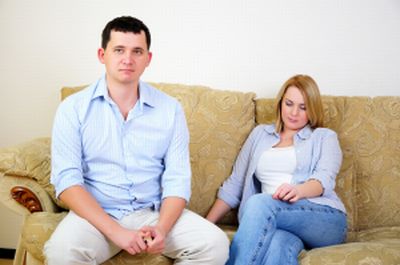Relationships, from acquaintances to romances, have the potential to
enrich our lives and add to our enjoyment of life. However, these same
relationships can cause discomfort, and sometimes even cause harm.
LaNae Valentine, Ph.D., shares the signs of an unhealthy relationship.
As human beings we’re wired for connection. The need to be closely
related to others is as basic as any biological need. All of us long to be in a
healthy, happy, fulfilling relationship, to feel loved, safe and secure.
Relationships, from acquaintances to romances, have the potential to
enrich our lives and add to our enjoyment of life. However, these same
relationships can cause discomfort, and sometimes even cause harm.
While there are no perfect relationships, the chance of attracting a loving,
nurturing relationship is more likely as we become more self-aware and
knowledgeable about what constitutes a healthy relationship.
Our culture has traditionally glorified unhealthy approaches to relationships
with the notion that we fall in love and live “happily ever after.” This ignores
the groundwork that relationships require. Many love relationships
depicted in our literature, music and media are really love addicted
relationships. We’re drawn to the romantic idea of two very different people
coming together – to love at first sight, forbidden love, intoxicating love.
We dream of finding our soul mate, our other half, the one who completes
us. These ideas are portrayed in romance novels, plays such as Romeo and
Juliet, movies/books such as Twilight, songs such as “Can’t Live if Living is
without You,” and Lady Antebellum’s “Need You Now.”
We’re often drawn to the excitement of driven, desperate, frantic
relationships. We’re mesmerized by characters whose relationship begins
with dislike, contempt or underlying tension which then crescendos into an
explosion of passion and joy. We are captivated by characters obsessed
with one another, who can’t get enough of each other, who want to spend
every possible moment together. This is all thrilling and fun, but when
does it become unhealthy?
In the Twilight saga for example, Edward can be overbearing and extremely
jealous of anyone being with Bella. This can feel flattering in the beginning,
when our love interest wants us all to him/herself. In real life when the
excitement wears off, it usually feels constrictive and controlling. Bella on
the other hand, has built her whole identity upon her relationship with
Edward, to the exclusion of almost anyone and anything else. While it’s
okay to do things with your boyfriend and to spend time together, you also
need to make sure you have a healthy balance of time spent with friends,
family, school, work and other interests.
It’s not clear what Edward and Bella’s relationship is based on. Physical
attraction and fantasy seem to be the big draw and neither are very stable
foundations. Bella describes her relationship with Edward by saying that he
is like a drug to her, and she is addicted. That will only take you so far in
the real world.
Most of us will have the experience of having a relationship end. This can
be a very upsetting experience and we need to have healthy coping
mechanisms in order to get through it. Healthy coping includes things like
talking with your friends, parents, or someone else who is close to you for
support; taking time for yourself like going on walks or riding a bike
because exercising can really help get those endorphins (the feel good
hormone) going in your brain. Pursuing personal goals and interests and
developing one’s talents can bring back a passion for life as well as seeking
strength and comfort through spiritual practices such as prayer and
meditation.
Some of the characteristics of an unhealthy crush include:
· Mistaking intensity or chemistry for love (drama driven relationships)
· Using a relationship to alter your mood or to relieve emotional pain
· Feeling worthless without a partner or a relationship, inability to be
without a relationship
· Feelings that a relationship makes you whole, or more of a man or
woman
· Feeling isolated, detached from parents, family and other friends
· Difficulty establishing healthy, functional boundaries with others
· Difficulty with emotional regulation and self-care
Some experts believe the causes of love addiction may be traced back to
childhood. A person who lacks self-esteem or who never feels they are
“special” enough just the way they are may grow up looking to other people
to give them constant reassurance that they are OK. They may not have a
strong sense of who they are and therefore rely on someone else to define
them. Other people who are addicted to love enjoy the feeling of
excitement that being “in love” brings.
In a nutshell, love addicts begin relationships by trying too hard to please
and connect. They are driven to find someone to tell them they are loveable
and loved; to find someone who will rescue them from their inability to care
for themselves; rescue them from their loneliness, emptiness, lack of self-
love, inability to feel safe in the world without someone to protect them.
They look for a relationship to make them feel whole.
What makes a healthy relationship?
A healthy relationship is when two people develop a connection based on:
· Mutual respect
· Trust
· Honesty
· Support
· Fairness/equality
· Separate identities
· Good communication
· A sense of playfulness/fondness
All of these things take work. As we spend time with someone and learn
more about them, we determine if we can trust them. As trust builds we
learn if we can rely on them. As we rely more on them we become more
attached to them. As attachment grows feelings of love and respect
blossom and we feel a desire to express our feelings through physical
touch. Rarely do we see this process in the movies and television
programs we watch. How often do we see a couple sleeping together on
their first date? Getting involved physically before doing the ground work
of establishing a trusting relationship often clouds one’s judgment and
confuses the process.
Signs of an Unhealthy Relationship
All of us need to be aware of unhealthy patterns in our relationships.
Below are some common signs that we would be wise to watch for in a
partner. They are indicators that something is wrong and should be
addressed.
Seeks instant intimacy: Anyone who develops an immediate
sense of
attachment and belonging without really knowing anything about you has
unhealthy dependency needs. Pressure for an exclusive commitment is
another indication of unhealthy dependence needs.
Clingy: Considers the intensity of need for each other as proof
of love.
Partner wants you alone for him/herself. At the extreme, tries to isolate
you from friends and families with constant demands of attention.
Excessively possessive: Trust issues – extreme inquisitiveness
about your
activity and whom you’ve talked to, jealousy and controlling behaviors like
keeping the money or car, and demanding you ask permission for
activities.
Unrealistic expectations: Expects you to be perfect in meeting
his/her
every need or becomes disappointed and angry.
Lacks a sense of responsibility: Blames others for problems and
mistakes.
Makes you responsible for his/her feelings – instead of saying “I am angry”,
he/she says “You make me angry”.
Hypersensitive: Feels insulted, hurt or angry at perceived slights
or
criticism when realistically there wasn’t any.
Cruelty to animals and children: Often very impatient with
normal children
/ animal behavior, punishes them brutally, may tease them until they cry.
Verbal abuse: Constantly criticizes and / or says blatantly cruel,
hurtful
things, demeaning and attacking your self-esteem when you fail to meet
some expectation.
Rigid roles: Expects you to conform to his her idea of how a wife
/
husband should be without a mutual consensus.
Threats of violence: Intimidation of threats of physical violence
directed at
self or you; often later dismissed as temper.
Women’s Services & Resources is sponsoring a Dating and Healthy
Relationships Conference February 16th in room 3380 WSC at Brigham
Young University.
Find information about the conference visit our blog at
http://www.byuwsr.blogspot.co
m/.















Add comment